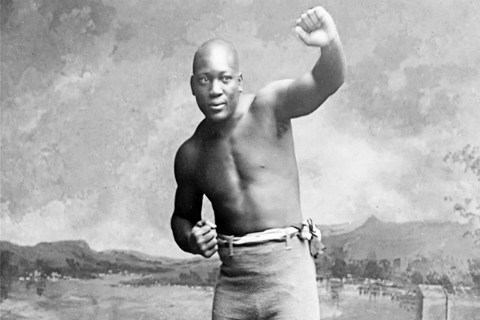Jack Johnson, a boxer, was convicted by an all-white jury of accompanying a white woman across the state lines in 1913.
President Donald Trump informed Saturday on his Twitter account that he is considering granting a full posthumous pardon to boxer Jack Johnson after actor Sylvester Stallone pleaded him to do the same.
“Sylvester Stallone called me with the story of heavyweight boxing champion Jack Johnson. His trials and tribulations were great, his life complex and controversial,” Trump tweeted. “Others have looked at this over the years, most thought it would be done, but yes, I am considering a Full Pardon!’’
Though he is the most recent figure who has come out in the support of late Jack Johnson, Stallone is by no means the only one.
Sylvester Stallone called me with the story of heavyweight boxing champion Jack Johnson. His trials and tribulations were great, his life complex and controversial. Others have looked at this over the years, most thought it would be done, but yes, I am considering a Full Pardon!
— Donald J. Trump (@realDonaldTrump) April 21, 2018
For, in 2016, then Senator John McCain and Senator Harry Reid, along with Reps. Gregory Meeks and Peter King petitioned the Obama administration to grant a posthumous pardon to Johnson. They demanded the pardon in a letter sent to the White House asking that the President honor the 70th death anniversary of the boxer by pardoning him.
Then, in March 2017, Senator Corry Booker joined the likes of McCain, Meeks, and King to urge President Donald Trump to pardon Johnson.
Who was Jack Johnson?
Jack Johnson was the first African-American to hold the honor of being the world heavyweight boxing champion. He was convicted in 1913 under ‘’the Mann Act’’ which, at least on paper, prohibited the transportation across state lines of women and girls for immoral purposes.
However, while its purpose was to prevent human trafficking, the critics of ‘’The Mann Act’’ have argued that it was used to criminalize African Americans or those who had dissenting political views. While the act has never been repealed, its severity has been decreased with alterations and amendments.
To further their viewpoint that the Mann act was discriminating, critics point to the case of Jack Johnson. Despite being a well-known figure, an all-white jury convicted Johnson in less than two hours, before sending him to prison for a year.
So severe were the repercussions of the act for the ‘’Galveston Giant’’ that his career never recovered from it. He died in 1946 with the stigma attached to his achievements.
